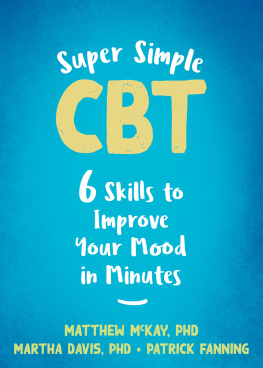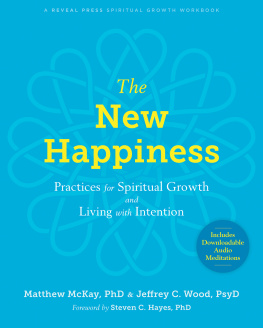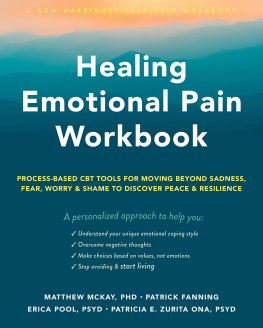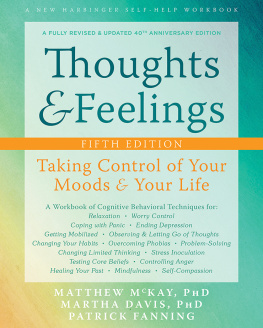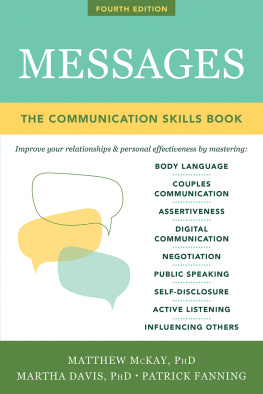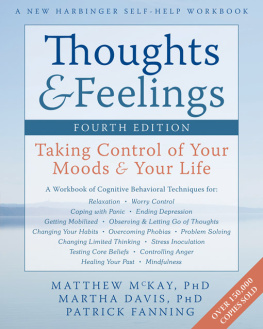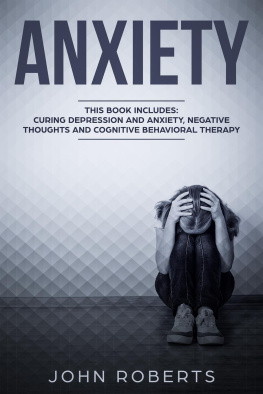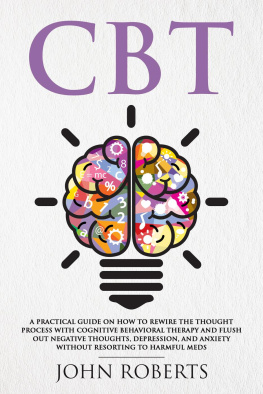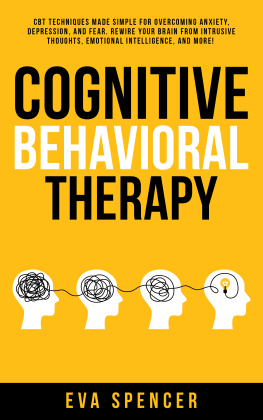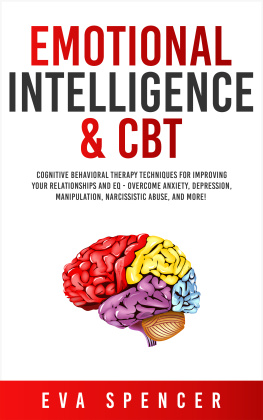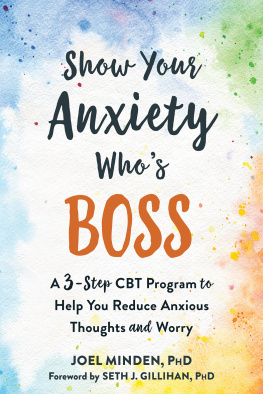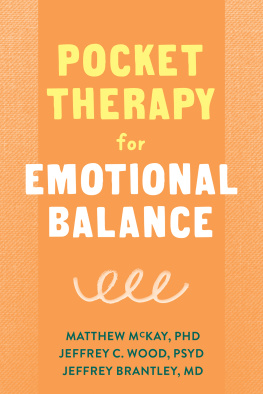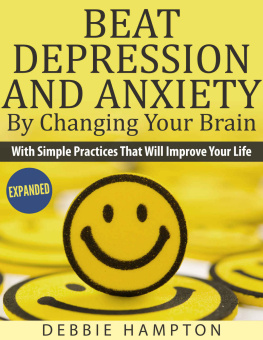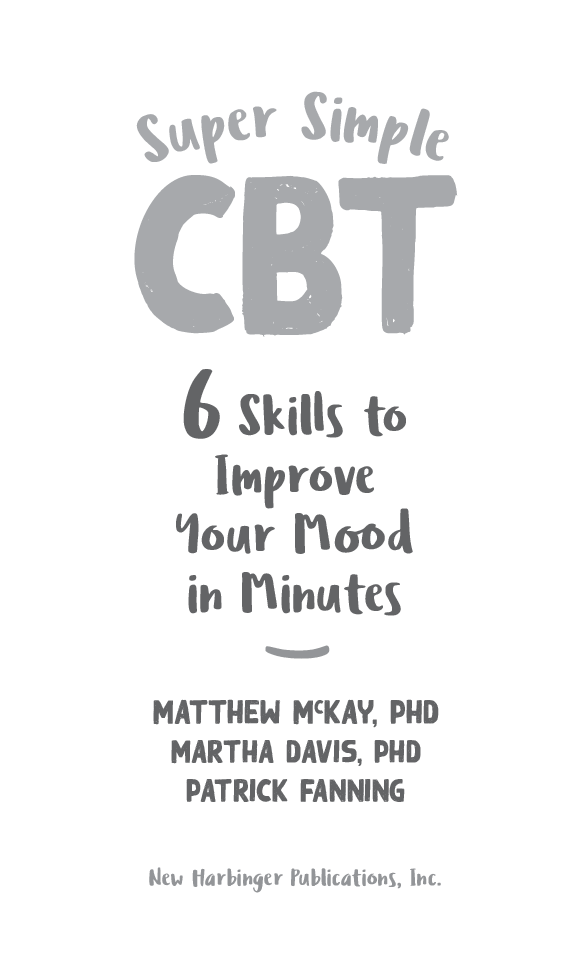This book will be a super and simple recourse to the people who suffer from anxiety, depression, and other psychological problems. Written by two expert clinicians, it provides a concise and excellent account of the essential strategies and procedures of cognitive behavior therapy (CBT) for changing how to respond to moods and life problems.
Riccardo Dalle Grave, MD, coauthor of the book, Cognitive Behavior Therapy for Adolescents with Eating Disorders
In just 153 pages, McKay and colleagues masterfully untangle the core strategies of CBT responsible for its effectiveness in alleviating emotional distress. Written in an easy, conversational manner, Super Simple CBT is packed with practical advice, skills-based exercises, and case examples that cut through the noise and detailed presentations found in many CBT workbooks. This primer is an excellent starting point if youre new to CBT or need greater clarity about this treatment approach.
David A. Clark, PhD, author of The Anxious Thoughts Workbook and The Negative Thoughts Workbook
This super simple CBT book is based on the basic principles of CBT: that thoughts cause feelings, and we can change our feelings by changing our thoughts. Starting from that, the authors describe certain kinds of dysfunctional thinking, help the reader identify and respond to them, and provide useful and simple techniques like worry control and relaxation to help consolidate new patterns of thinking and feeling. This little book is not only on super simple CBT skills, but also on super effective skills for anxiety and low mood.
Gregoris Simos, MD, PhD, professor of psychopathology at the University of Macedonia in Greece
Super Simple CBT provides an easy-to-read, focused overview of key CBT skills. You will learn how to identify thoughts that are related to your emotional distress, and how to develop more balanced and helpful thinking patterns. You will also learn practical skills to help you lead a happier and better life. The book is full of examples as well as helpful exercises and strategies. This is a book that could change your life.
Nina Josefowitz, PhD, coauthor of CBT Made Simple
CBT is the gold-standard way to help you think clearly, feel better, and act effectively. Super Simple CBT is like an easy-to-read cookbook with a scientifically tested recipe to overcome miseries and thrive. The authors splendidly show how you can take charge of your life. Use the ideas and exercises to free yourself from anxiety, depression, anger, and other painful emotions. Youll be glad you did.
Bill Knaus, EdD, author of The Cognitive Behavioral Workbook for Depression , The Cognitive Behavioral Workbook for Anxiety , and The Procrastination Workbook
Super Simple CBT is a super book. McKay, Davis, and Fanning have produced a much-needed text for anyone who is looking for a clear, accessible, and succinct introduction to CBT. I highly recommend it. Its simply brilliant.
Stefan G. Hofmann, PhD, coauthor of Learning Process-Based Therapy
I highly recommend Super Simple CBT to anyone who is struggling with worry, anxiety, or depression and is unsure about how to manage it. The authors have done an excellent job of presenting a comprehensive and research-based toolbox of CBT skills in a straightforward, approachable, and user-friendly manner.
Melisa Robichaud, PhD, coauthor of The Generalized Anxiety Disorder Workbook and The Worry Workbook
If you are looking for immediate, actionable steps to address your anxiety or depression, Super Simple CBT is a great place to start. The authors have expertly distilled the active ingredients of CBT into a straightforward, easy-to-read guide with linked worksheets that encourage daily practice without being overwhelming.
Jamie Micco, PhD, ABPP, author of The Worry Workbook for Teens
Publishers Note
This publication is designed to provide accurate and authoritative information in regard to the subject matter covered. It is sold with the understanding that the publisher is not engaged in rendering psychological, financial, legal, or other professional services. If expert assistance or counseling is needed, the services of a competent professional should be sought.
Distributed in Canada by Raincoast Books
NEW HARBINGER PUBLICATIONS is a registered trademark of New Harbinger Publications, Inc.
Copyright 2022 by Matthew McKay, Patrick Fanning, and Martha Davis
New Harbinger Publications, Inc.
5674 Shattuck Avenue
Oakland, CA 94609
www.newharbinger.com
Cover design by Amy Shoup; Interior design by Amy Shoup and Michele Waters-Kermes; Acquired by Elizabeth Hollis Hansen
All Rights Reserved
Library of Congress Cataloging-in-Publication Data
Names: McKay, Matthew, author. | Davis, Martha, author. | Fanning, Patrick, author.
Title: Super simple CBT : six skills to improve your mood in minutes / Matthew McKay, Martha Davis, Patrick Fanning.
Description: Oakland, CA : New Harbinger Publications, 2022. | Includes bibliographical references.
Identifiers: LCCN 2021037340 | ISBN 9781684038695 (trade paperback)
Subjects: LCSH: Cognitive therapy--Popular works.
Classification: LCC RC489.C63 M338 2022 | DDC 616.89/1425--dc23
LC record available at https://lccn.loc.gov/2021037340
Contents
Introduction
Life is hard. To cope, all of us have been given a random set of tools and instructions by parents, family, friends, teachers, bosses, and others. Some of this has been helpful, some not. This book gives you tools from cognitive behavioral therapy (CBT) that work. It is a guide for changing how you respond to your moods and your life.
You may believe painful feelings are caused by forgotten childhood experiences. Maybe you assume the only way to relieve these feelings is through long, difficult analysis to root out unconscious memories and associations.
There is some connection between your distant past and painful feelings in the present. But there is a much more immediate and accessible source of emotions: your current train of thought.
Two simple insights form the heart of CBT. The first is this:
1. Thoughts cause feelings.
Most emotions are immediately preceded by some kind of interpreting thought. For example, say a friend doesnt call when they said they would.
If you think, He doesnt like me after all, you might feel sadness or shame.
If you think, They must have been in an accident, you might feel fear and anxiety.
If you think She lied to me. Shes blowing me off! you might feel angry.
Different thoughts about the same event spark very different emotions. But theres something you may have noticed, reading this example. That something is expressed by the second simple insight at the heart of CBT:
2. You can change your feelings by changing your thoughts.
In any situation where thoughts are triggering emotional distress, cognitive behavioral tools can help. This is especially true for automatic or habitual thoughts.
Over the past sixty years, CBT researchers and therapists have created and road-tested tools based on these insights. They are practical, easy to learn, and can give reliefespecially from anxiety and depression.
ANXIETY becomes a problem when you worry more days than not for at least six months. It is difficult to control and you likely experience these symptoms:
- restlessness
- fatigue
- difficulty concentrating
- irritability
- muscle tension

